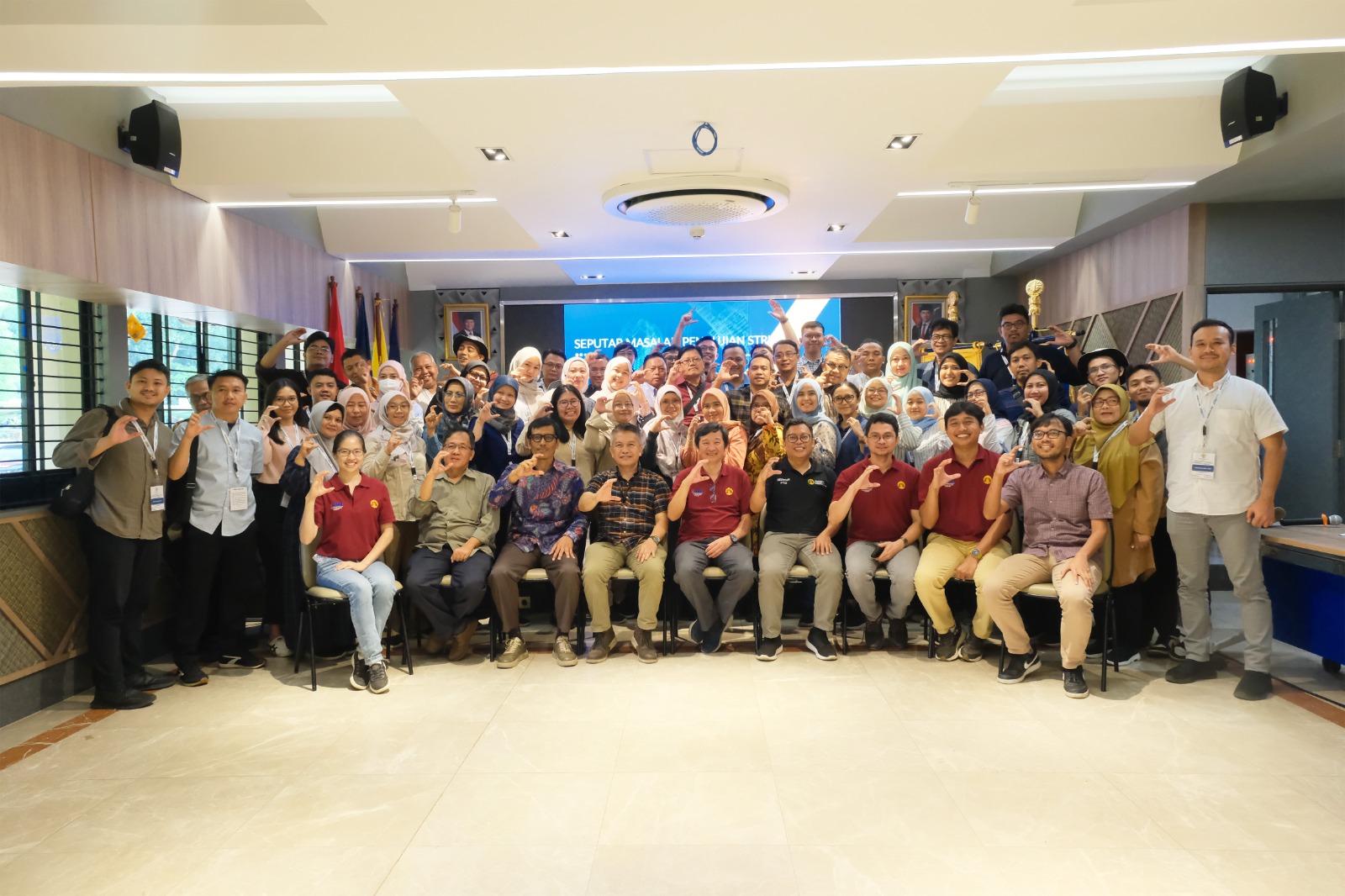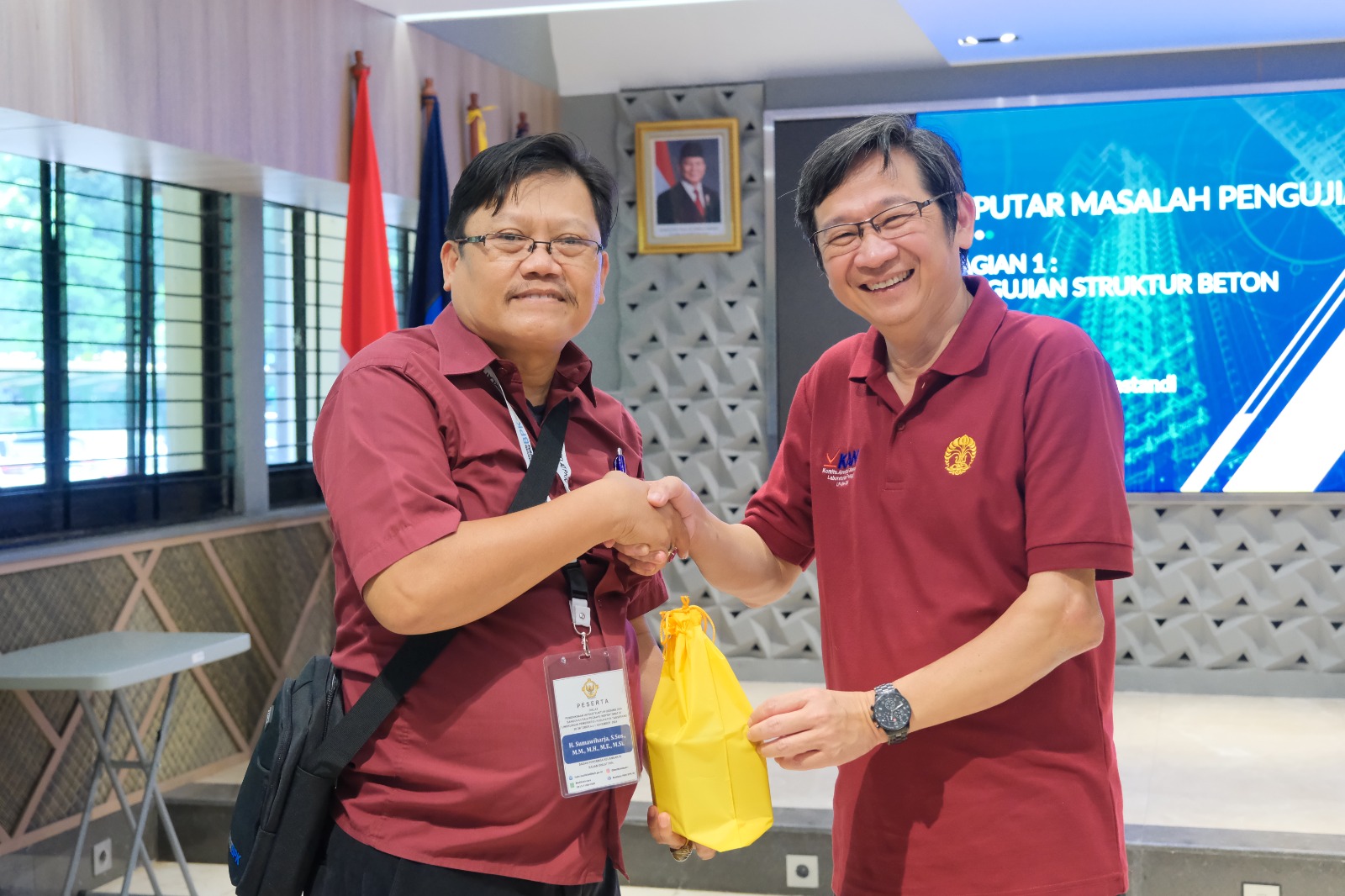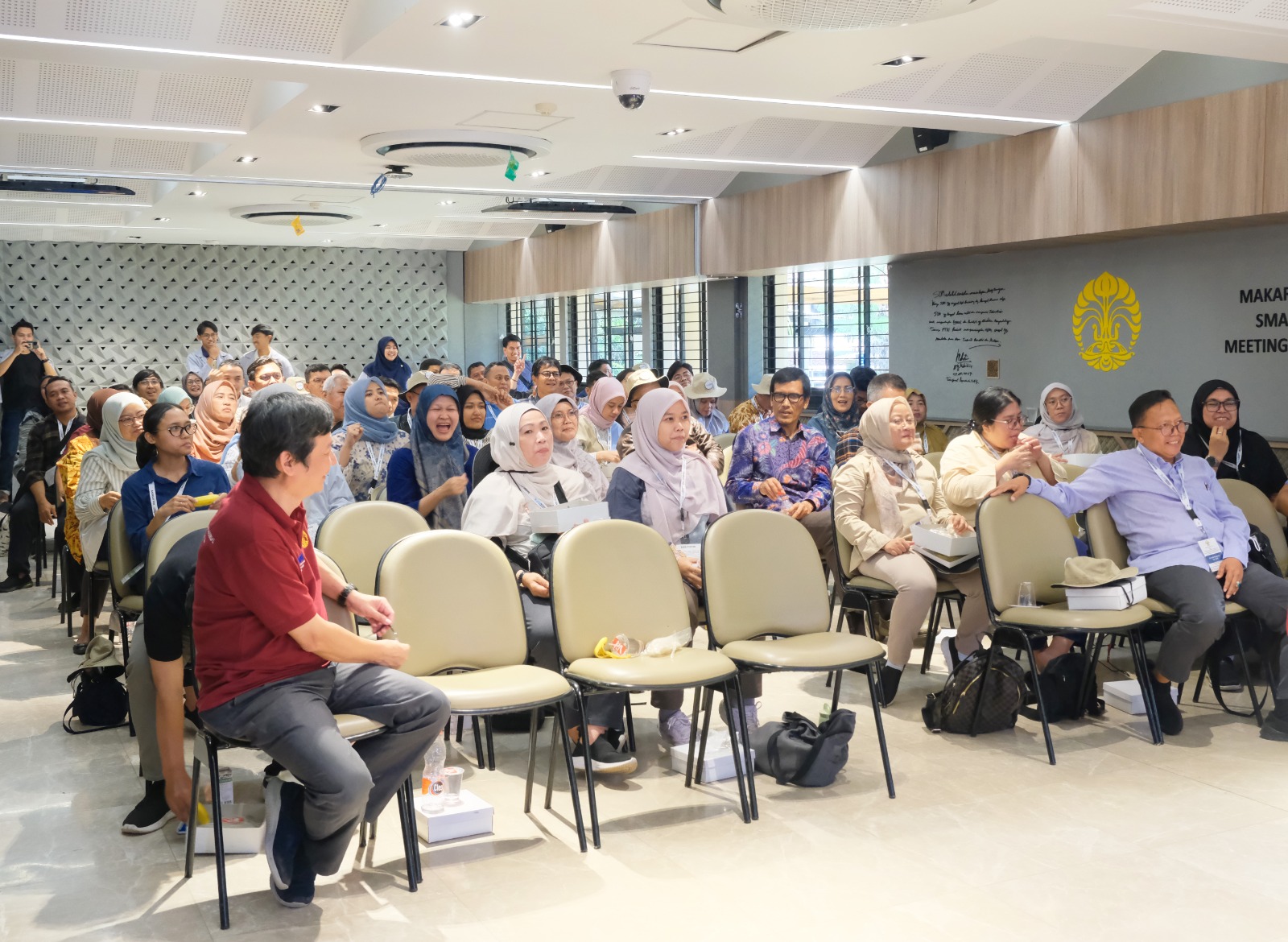On Thursday (October 31), the Faculty of Engineering, Universitas Indonesia (FTUI) collaborated with the National Education and Training Agency of the Indonesian Supreme Audit Agency (Badiklat PKN BPK RI) to conduct a training on Building and Infrastructure Inspection, held at the Smart Meeting Room (SMR) of the FTUI Dean’s Building. The training was attended by 53 participants and aimed at enhancing their ability to analyze and inspect infrastructure work per applicable regulations. The event was led by Dr. Jessica Sjah, S.T., M.T., M.Sc., and Dr. Dipl.-Ing Nuraziz Handika, S.T., M.T., M.Sc., both lecturers from the Civil Engineering Department.









